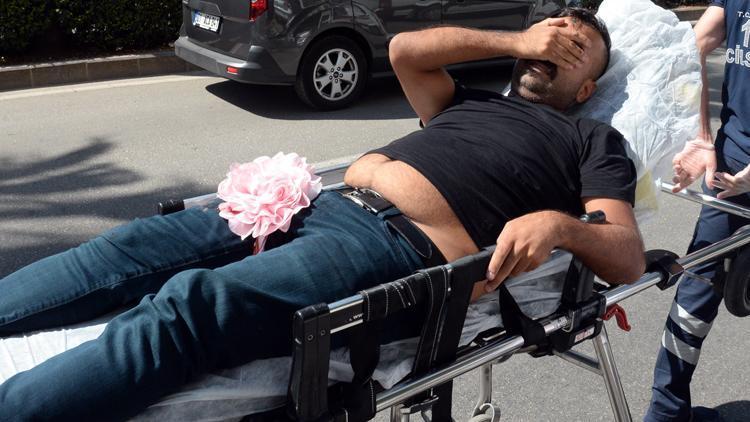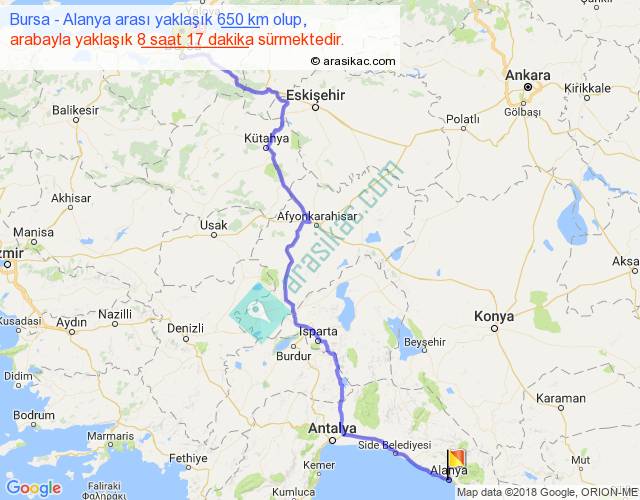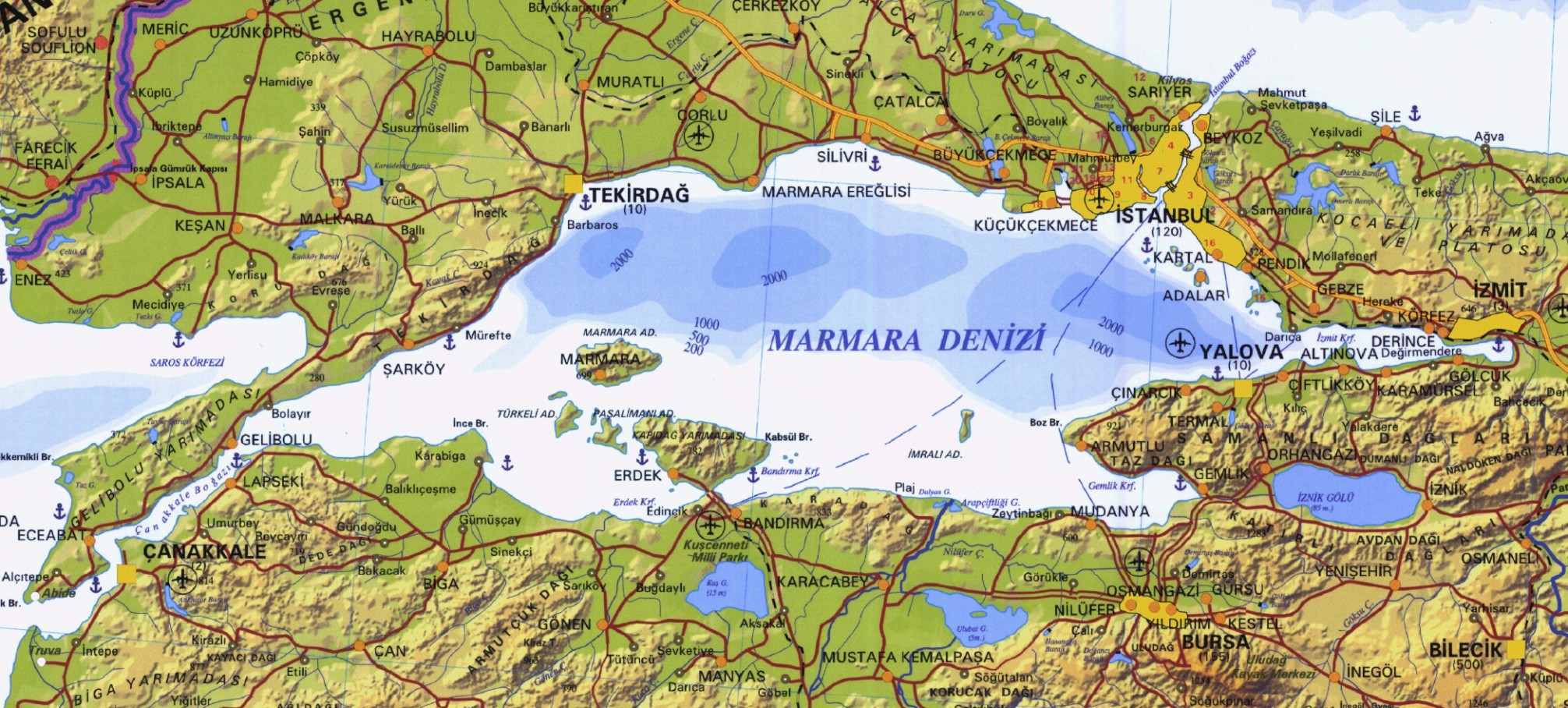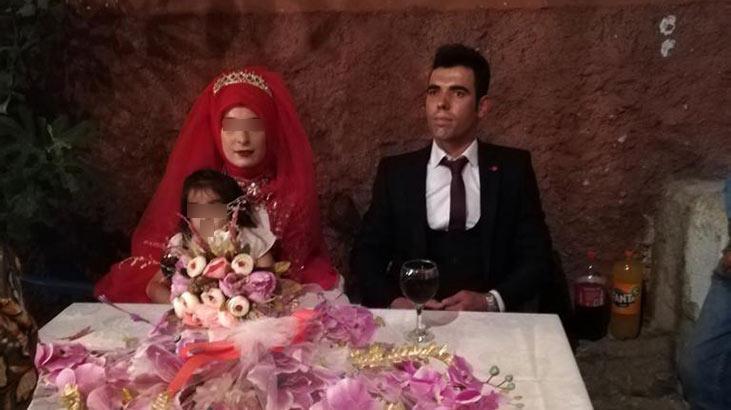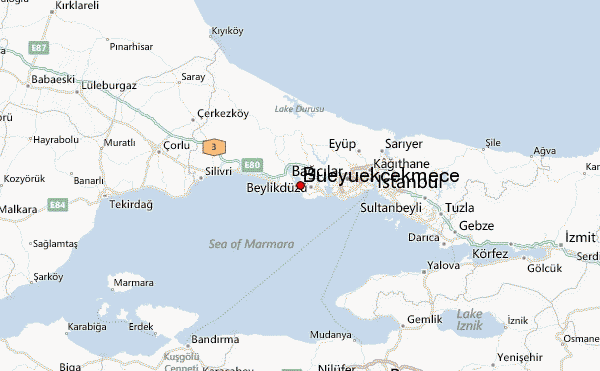//Ed. note: Dr. Şerefeddin Mağmumi, in exile in Cairo, took
up the issue of various recent massacres of non-Christians
by European Christians: from the Dutch in Java, to the
Russians in the Far East and, again, by the Russians in
Kishinev, in the early 1900s. He juxtaposed the silence
of Westerners about these events, with their outrage over
Ottoman clashes with its Christian minorities.//
 Diogenes searching for that ever-elusive honest man...
Diogenes searching for that ever-elusive honest man...
I'm Thinking That...
"Türk" newspaper: 18 August 1906
The Greek philosopher Diogenes roamed the streets with a torch in
broad daylight shouting "I'm searching for an honest man!" It has now
been 3 weeks since I read the telegram about the massacre of 1,085
people in Java by Dutch soldiers. So, with a big magnifying glass in my
hand I've been reading the French newspapers I have, searching for any
word of protest by a humanitarian.
 Dutch attack on Bali in 1906.
Dutch attack on Bali in 1906.
Where are the public-spirited Europeans who shout "Barbarian Turks!
Vicious Kurds and Albanians!" if a drop of Bulgarian or Armenian blood
is spilled in Rumeli or in Anatolia? Actually, soldiers and Gendarmerie
are sent to these most civilized corners of the world to fend off the flag-
waving gangs armed from head to toe in Bulgaria, who then cross over
into Turkey with dynamite to bomb banks, bridges, railway wagons; to
forcibly incite villagers, who are otherwise busy with their chores; and
to kill, maim and loot those who do not obey them.
If these bandits take refuge on a mountain or in a village then they are
bombarded and, of course, some of the villagers will be killed along
with the rebels. But the Europeans scream "The Turks are massacring
the Bulgarians and burning villages!" They proceed to go from city to
city, holding conferences, making speeches, publishing articles and
brochures supposedly to collect donations for the poor villagers and
orphans, but in reality, the money goes to the rebels and bandits.
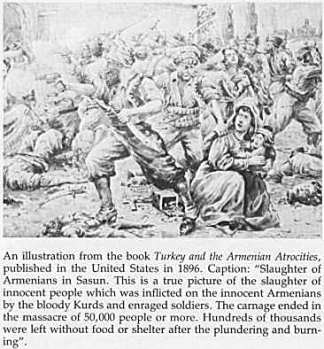
For example, as has been verified by a collective report by foreign
consuls, Ottoman soldiers were sent to restore law and order in the
face of armed gangs of Russian Armenians from the Caucasus who
were supported groups hiding in the Sason Mountains. Certainly,
there were casualties on both sides but these same Europeans right
away started screaming "Massacre! Pillage!". They put the number
of dead at 1,000, even though it was 10, and display telegrams
concocted and written by dubious sources from Muş and Van.
How odd! This tenderness and compassion of the West that seeks out
only those who worship in places with the cross. Humanitarians! They
consider only Christians worthy of support and protection. One drop of
Christian blood might as well be a lake, as far as they are concerned.
Even if the blood comes from a bloody murderer or a bandit, when
killed by a Moslem these cross-worshiping criminals are considered
innocent and sinless. Defending their rights is a sacred duty!
dutch 'intervention' in Bali click here for background & details.
 Dutch colonization of Indonesia.
Dutch colonization of Indonesia.
Meanwhile, in Java, the Dutch massacred men, women and children
armed with only the most primitive weapons, as if they were sheep.
But the press agencies told the world about this with a two-line
telegram and no one protested, no one wrote even a 5-line paragraph
disapproving the massacre. There were no conferences, no speeches,
not even a word. It seems that the Javans aren't humans but, rather,
they're considered animals. But really, less than animals, because in
the West groups and governments support even animal rights. The
real reason is that the Javans were Moslems and those that conducted
the massacre were civilized Europeans!
blagoveshchensk massacre click here for background & details.

A few years ago in China, the Russians herded 30,000 people from
a city (Blagoveshchensk) into the Amur River, blocked them from
exiting and consequently they all drowned. For a few days, river
traffic was suspended because of all the bodies floating in the water.
In light of this atrocity, the 'humanitarian Europeans' remained
astonishingly quiet, with not even a whimper being heard. The
reason? The victims worshipped an idol rather than the cross and
their executioners were civilized Europeans!
kishinev massacre click here for background & details.
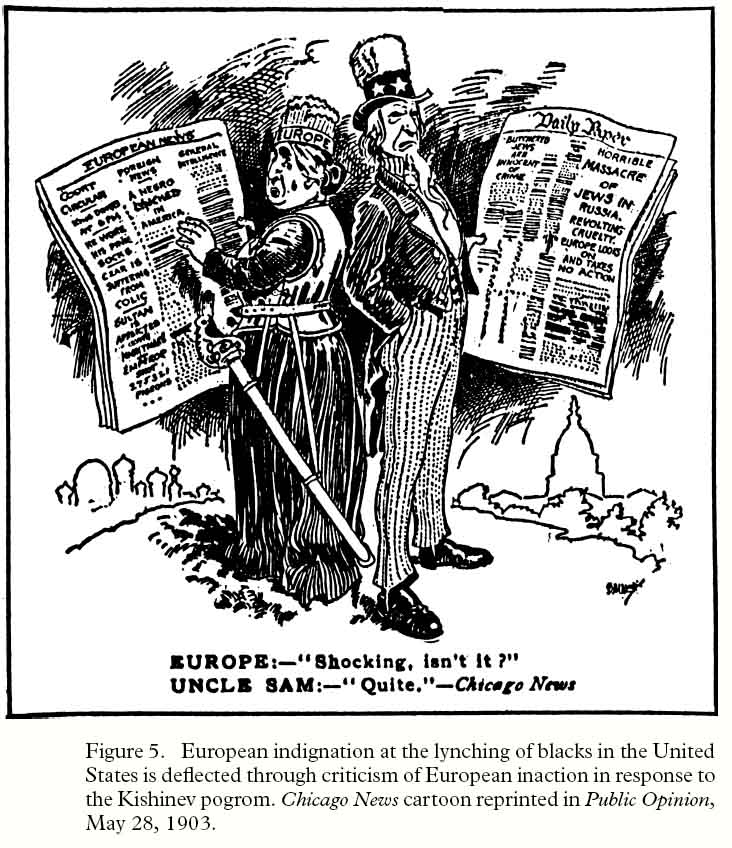
Again in Russia, in the city of Kishniev (today's Chisinau, Moldova), the
Jews were attacked on Easter Sunday and hundreds of them massacred
and their shops looted. But not a peep was heard from the West's
humanitarians. The reason? Those massacred were Jews and those who
perpetrated the massacre were civilized Christians! The Crusades
continue, this time by those with eloquent tongues instead of iron
swords.
Claiming to be secularists, these Westerners still come under the sway
of religious schools they attended and the education and training they
received. In reality, they are religious fanatics with a fervent animosity
against Islam. When it comes to religious extremists, the Christians
are at the head of the line. Even the most liberal among them long
to see the crescent above Aya Sofya changed back to a cross. Their
empty words about caring for the other half of the world that hold
different beliefs and their counterfeit calls for freedom and independence
are seductive but worthless. Let's not be fooled.




